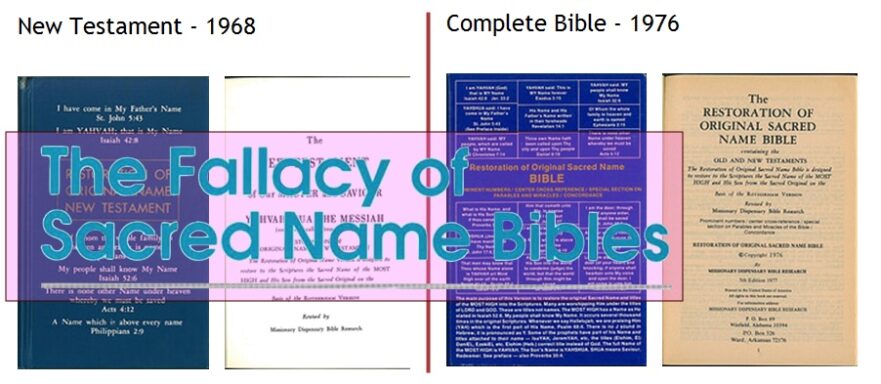Inaccuracy in translating either through ignorance or because of an obscure manuscript reading is to be expected, but to skew wittingly due to academic bias or religious tendentiousness smirches the reputation of a venerable profession.
We Are the Pots; Jesus Is the Stone!

A reader presupposes his allegorical theology upon the words of Jesus and Joseph Frankovic responds.
From Allegro to Zeitlin

In this article the author explains his view that the output of cheap, pseudo-scholarship has driven legitimate, serious scholarly information from the marketplace of ideas.
“And” or “In order to” Remarry?

Apparently, contrary to normal Greek usage, Greek’s kai (“and”) in the sense of “in order to” occurs in the Synoptic Gospels.
The Tetragrammaton
Regarding your article “‘Jehovah’—A Christian Misunderstanding” that appeared in the November-December 1991 issue of Jerusalem Perspective, you indicate that Galatinus gave the Church “Jehovah” as a misnomer for the name of God (p. 6). It is my understanding that this happened much earlier.
The Fallacy of Sacred Name Bibles

Some Christian teachers argue that it is wrong to translate God’s personal name as “LORD,” and that English Bible translators should use “Yahweh” instead.
“Jehovah”: A Christian Misunderstanding

In any attempt to understand the Bible, there is no substitute for a knowledge of ancient Jewish custom and practice. For example, the term “Jehovah,” which is found in many Christian translations of the Bible, originated due to Christian lack of awareness of Jewish custom.
Who Is a Jew in the Gospels?

Most English translations consistently translate the Greek word Ἰουδαῖοι (Ioudaioi) as “Jews.” But this inflexible translation has often contributed to an anti-Semitic interpretation of the New Testament.
Understanding Parables

The rabbis taught, “Do not underestimate the value of parables, because by means of parables a person can master the words of Torah” (Song of Songs Rabbah 1:8).


